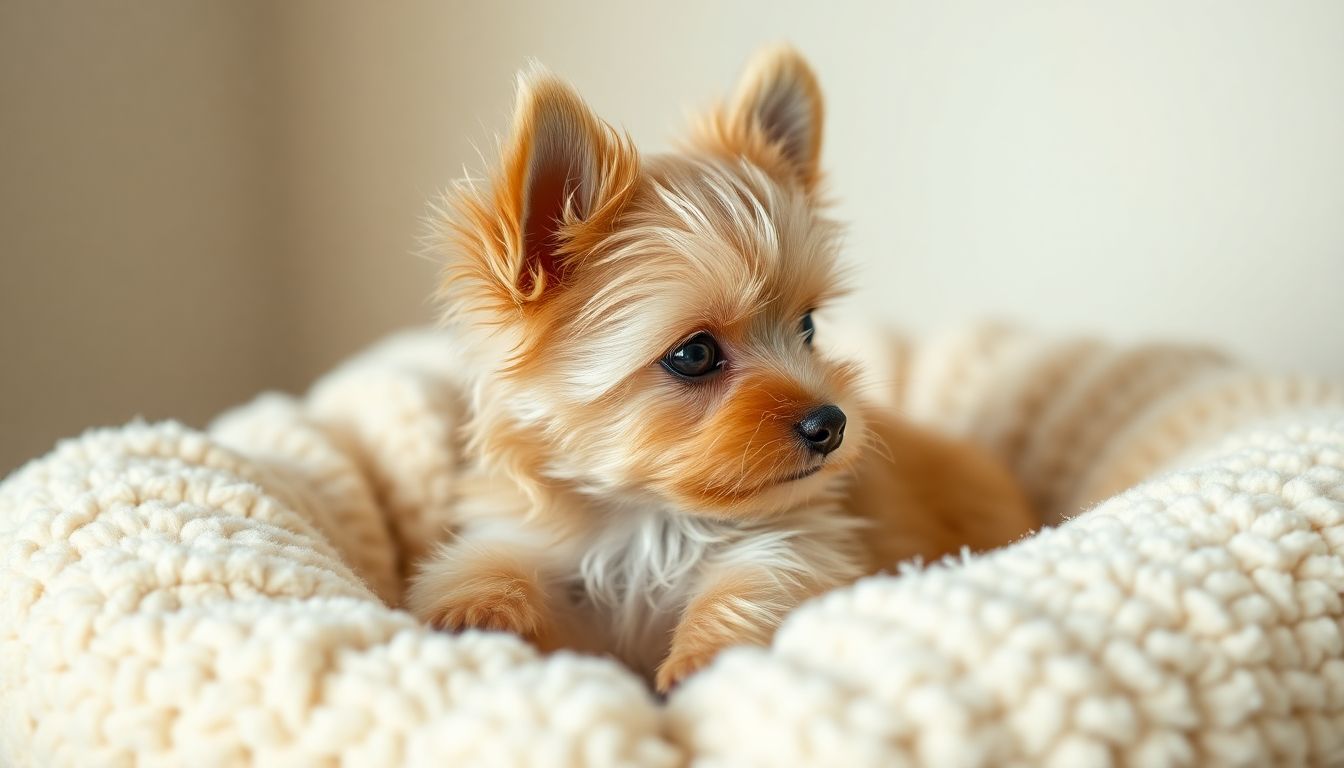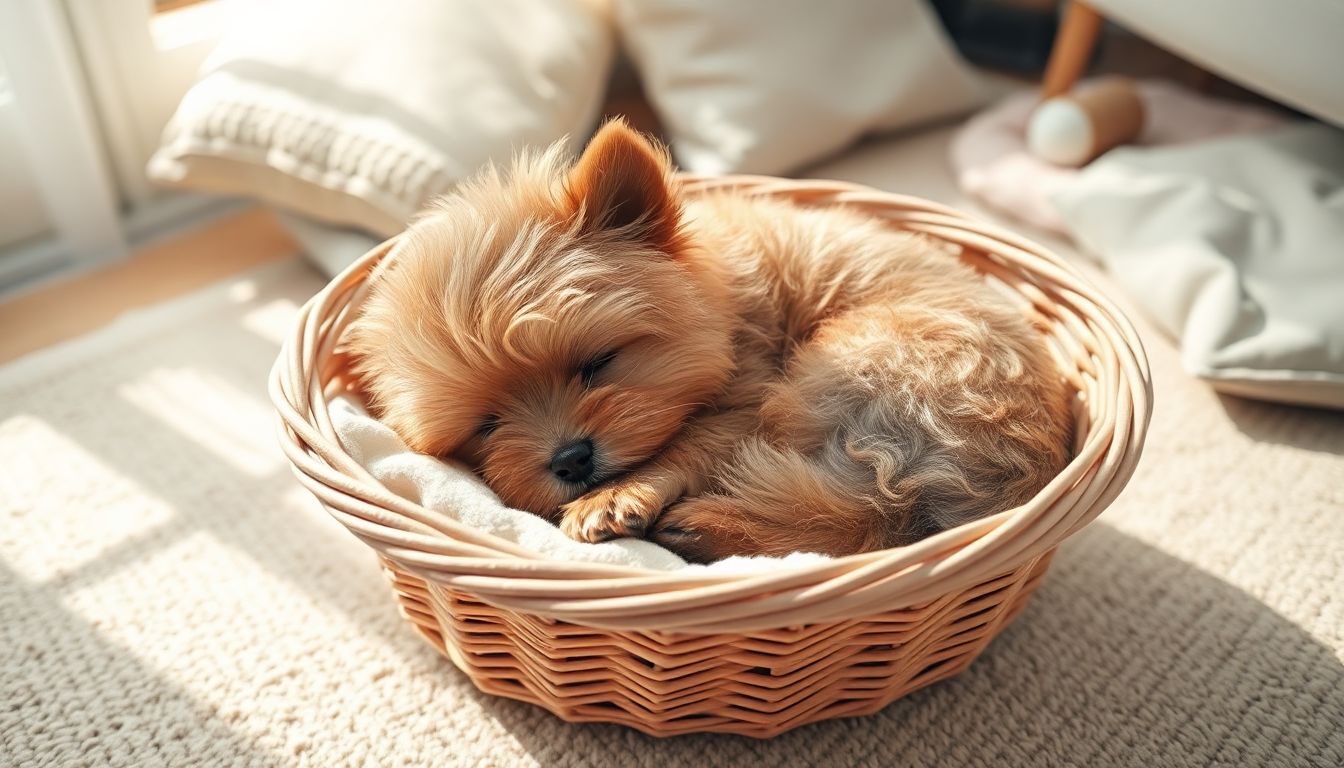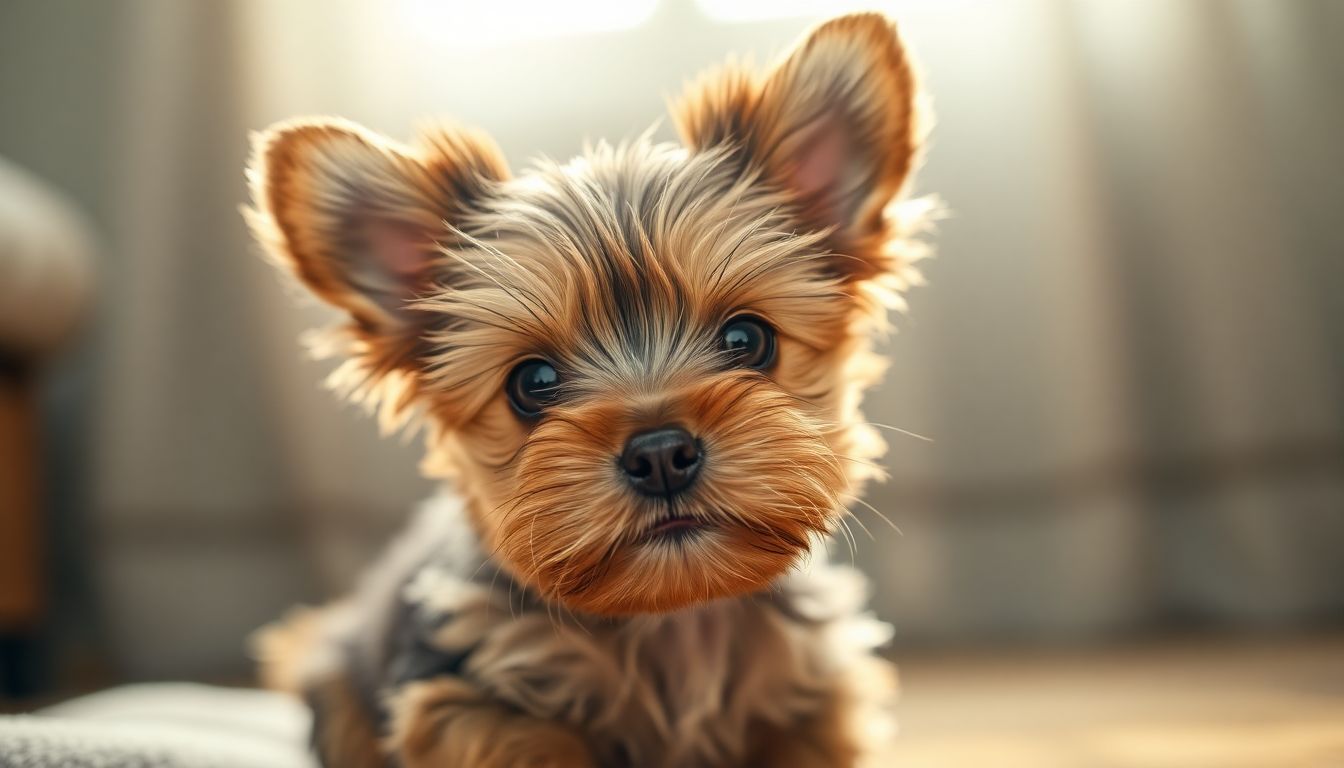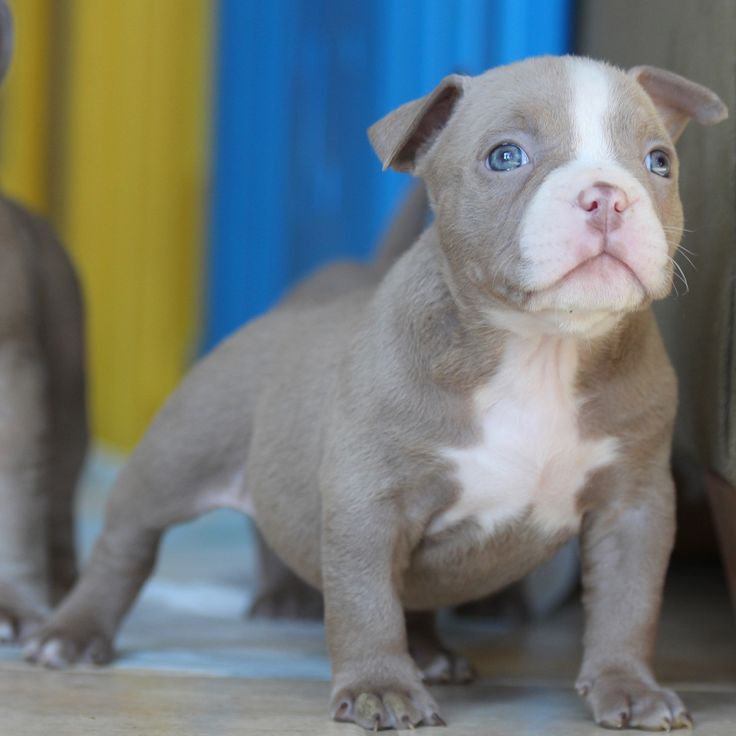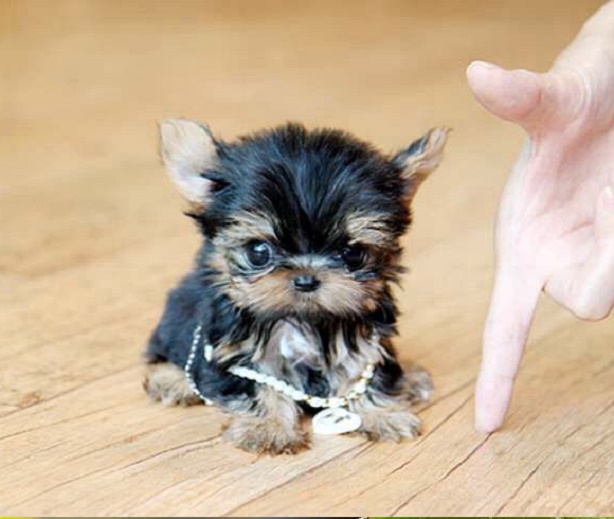The Ultimate Guide to Yorkshire Terrier Lifestyle: Care, Training & Happiness
Known for their big personalities packed into small bodies, Yorkshire Terriers are more than just adorable lap dogs. These lively, affectionate pups adapt well to various lifestyles, thriving in apartments and large homes alike. Their high energy and spunky nature make them ideal companions for those who love staying active while their loyal demeanor makes them perfect cuddle buddies for quieter days. It’s no wonder they remain one of the most popular breeds among pet owners.
For a deeper look at Yorkies and Yorkie mixes like the Yorkipoo, check out this guide on dog breeders.
Want to explore more about Yorkies? Watch The 7 Types of Yorkshire Terrier Breeds on YouTube.
Understanding the Yorkshire Terrier’s Personality
Yorkshire Terriers are a little dog with a big dog attitude. Though tiny in stature, they have a huge personality that often surprises first-time owners. From their loyalty to their playful energy, Yorkies are a delightful combination of traits that make them one of the most beloved companion breeds.
Loyal Companionship
Yorkies might be small, but their loyalty knows no bounds. They form incredibly deep bonds with their human family members and are happiest when they’re by your side. Whether you’re working at your desk or relaxing on the couch, your Yorkie will be there, offering love and unwavering devotion. This loyal nature makes them excellent companions for those seeking a close-knit connection with their pet.
For more insight into Yorkie mixes, their personalities, and why they make such great companions, check out this guide: Morkie Dog Breed.
Energetic and Playful Dispositions
Despite their petite size, Yorkshire Terriers are bursting with energy. They love to play and thrive on interactive bonding moments with their family. Whether it’s a game of fetch or exploring new toys, Yorkies bring a vibrant energy to the home. Their playful spirit not only keeps them healthy and happy but also entertains anyone around them. Don’t underestimate their size – these little dogs have plenty of stamina!
Learn more about Yorkie personalities here: Yorkshire Terrier Dog Breed Overview.

Photo by Dom Bucci
Adapting to Your Lifestyle
Yorkies are remarkably adaptable, which makes them a great fit for various living situations. Thanks to their small size, they are perfect for apartment life and don’t require a spacious backyard to thrive. However, they also love exploring larger homes and outdoor spaces. Providing a mix of rest and activity can help them feel content no matter where they live. Their ability to adjust makes them suitable for both city life and quieter suburban environments.
Challenges in Personality
As charming as they are, Yorkshire Terriers have their challenges too. They are known for their occasional stubbornness, which can test the patience of even seasoned dog owners. Training a Yorkie requires consistency and a gentle approach. Additionally, their bold attitude might lead them to act like a “big dog in a tiny body,” which sometimes means barking at strangers or unfamiliar dogs. With the right training and socialization, these behaviors can be managed effectively.
For more helpful resources on Yorkies’ temperament and care, visit this page: Yorkshire Terrier (Yorkie) Dog Breed Information.
Yorkshire Terriers are a delightful mix of feistiness, affection, and adaptability. These traits make them wonderful companions, no matter your living situation or lifestyle.
Daily Care Needs of a Yorkshire Terrier
Caring for a Yorkshire Terrier involves understanding their unique needs to ensure they remain happy, healthy, and looking their best. From maintaining their silky coat to staying active and eating right, here’s what your Yorkie needs daily.
Grooming Essentials

Photo by Gustavo Fring
Yorkshire Terriers are known for their stunning coats that resemble human hair. But keeping their fur tangle-free and vibrant requires regular grooming. Daily brushing is a must to avoid tangles and mats, especially since Yorkie coats are prone to knots. Use a soft bristle brush or a pin brush specifically designed for silky coats.
In addition to brushing, make trimming a regular habit. Focus on keeping the hair around their ears, paws, and sanitary areas neat. Regular baths (every 3-4 weeks) with a gentle, dog-safe shampoo will help maintain that glossy look. Don’t forget their dental hygiene—Yorkies are prone to dental issues, so brush their teeth at least three times a week.
For more tips and advice on grooming and finding trustworthy breeders, visit the Dog Breeders page.
Exercise Requirements
Despite their pint-sized frame, Yorkshire Terriers have plenty of energy to burn. To keep them happy and healthy, aim for at least 30 minutes of exercise daily. This could be a brisk walk through the park, a fun game of fetch, or some indoor play if the weather isn’t cooperating.
Yorkies are also mentally active dogs. Along with physical exercise, incorporate activities that challenge their brains, like puzzle toys or hide-and-seek games. Keep in mind their small stature—while they love exploring, avoid overly strenuous activities that could strain their joints.
Did you know their energy levels and active lifestyle play a crucial role in their overall wellness? Learn more about maintaining proper Yorkshire Terrier care with this resource on Yorkies.
Nutritional Needs
A balanced diet is vital for Yorkshire Terriers, especially because their small size means even a slight imbalance can affect their health. Opt for high-quality dog food tailored to small breeds, ensuring it’s rich in proteins, healthy fats, and essential nutrients like Omega-3 for skin and coat health.
Yorkies have sensitive stomachs, so it’s essential to introduce changes to their diet gradually. Split their daily food intake into two or three smaller meals to maintain their energy levels and reduce the risk of hypoglycemia, a common issue in toy breeds.
When offering treats, choose healthy options like carrot sticks or specially formulated dental chews. Avoid foods high in sugar or salt, as these can impact their health adversely over time.
To explore more care tips and best practices for Yorkies, check out this comprehensive guide on Yorkshire Terrier care.
By meeting their grooming, exercise, and dietary needs, you can ensure your Yorkshire Terrier thrives in your care. Their well-being and happiness depend on your consistent attention and love.
Training Your Yorkshire Terrier
Training a Yorkshire Terrier—fondly referred to as a Yorkie—can be a delightful experience when approached with patience and understanding. Known for their intelligent but occasionally strong-willed nature, Yorkies require a good mix of consistency, positive reinforcement, and social interaction. Training this spirited breed is a journey of building both trust and companionship.
Housebreaking Tips

Photo by Sam Lion
Housebreaking your Yorkie may seem challenging initially, but their intelligence and eagerness to please make it achievable with the right approach. Start by creating a consistent routine that includes regular potty breaks, especially after meals or naps. Using specific commands like “Go potty” helps your Yorkie associate the action with the command.
If you’re comparing intelligent mixed breeds like Yorkipoos, they often benefit from similar techniques due to their Poodle traits. Read more about Yorkipoos and other intelligent mixes here.
Here are some key tips for successful housebreaking:
- Praise and Reward: Always celebrate when your Yorkie goes in the right spot. A treat or gentle praise can go a long way.
- Crate Training: Yorkies often see crates as a safe haven, and it can help prevent accidents around the house.
- Be Patient: Accidents are bound to happen. Avoid punishment, as it can cause fear and prolong the process.
- Use Training Pads: For apartment dwellers, indoor training pads can be a lifesaver.
Addressing Stubborn Behavior
Yorkies are smart, lovable, and… sometimes a little stubborn! Their feisty nature can lead to moments of defiance, but patience and positivity are your greatest tools. Firm yet kind methods are key to overcoming challenges.
Set boundaries early—teaching basic commands like “sit,” “stay,” and “come” helps build a foundation for control and trust. Use short, fun training sessions of about 10-15 minutes to hold their attention. Remember, a Yorkie responds best to a consistent leader rather than harsh corrections.
Here’s an external resource for additional insights into working through Yorkie stubbornness: Training Timeline For a Yorkie Puppy.
Socialization Techniques
Socialization is crucial for developing a well-mannered Yorkie. Without it, they may become shy, wary of new experiences, or overly protective. Introduce your Yorkie to various sounds, environments, and faces during their early weeks at home.
Tips for effective socialization:
- Frequent Walks: Walking through the neighborhood or parks introduces new people, pets, and settings.
- Playdates: Arrange meetups with other well-behaved dogs—this teaches your Yorkie how to interact and play appropriately.
- Invite Guests: Allowing friends or family to interact with your Yorkie helps them get accustomed to new faces and energies.
- Positive Exposure: Bring treats or toys during outings to associate new experiences with good things.
For additional resources on improving social skills in Yorkies, this guide might be helpful: How to Train a Yorkie in Six Steps.
By focusing on housebreaking, addressing stubborn behavior, and prioritizing socialization, you’ll raise a happy, well-rounded Yorkshire Terrier who thrives in any situation.
Creating the Perfect Environment for Your Yorkshire Terrier
Yorkshire Terriers, with their playful nature and curious personalities, thrive best in a home that’s designed with their needs in mind. Creating a safe, comfortable, and stimulating environment ensures not only their happiness but also their well-being. Here’s how you can make your home the ideal haven for your Yorkie.
Dog-Proofing Your Home

Photo by Sarah Chai
Yorkies are small yet incredibly energetic, often ready to explore every nook and cranny of your home. Since their curiosity can sometimes lead them into trouble, it’s essential to dog-proof your living space. Here’s how:
- Secure Electrical Cords: Tidy up cables with cord covers or ties to prevent chewing.
- Remove Toxic Materials: Common household items like cleaning supplies, medications, and certain plants (like lilies) should be stored out of reach.
- Install Safety Gates: Use gates to block off staircases or restrict access to unsafe areas.
- Close Off Small Spaces: Seal gaps behind furniture or appliances, where a curious Yorkie might get stuck.
For guidance on keeping your Yorkie safe and happy at home, check out this resource on creating a safe and stimulating environment for your Yorkie.
Comfortable Sleeping Arrangements
A good night’s sleep is essential for your Yorkie’s health and mood. Just like us, they need a cozy, inviting place to rest. Consider these tips for creating the perfect sleeping setup:
- Choose the Right Bedding: Opt for a soft and supportive bed sized for small dogs. Orthopedic options are great for older Yorkies.
- Location Is Key: Place their sleeping area in a quiet spot that’s free from drafts and excessive noise.
- Add Familiar Items: Include a blanket or toy with their scent to make them feel secure.
- Regular Maintenance: Wash bedding frequently to keep it clean and free from allergens.
Looking for high-quality supplies for your pup? Learn more about Yorkie essentials, from beds to toys, at Yorkshire Terrier Biewer.
Toys and Accessories
Yorkshire Terriers are lively dogs that thrive on mental stimulation and interactive play. Investing in the right toys and accessories ensures they stay engaged and entertained. Here are some suggestions:
- Toys for Active Play: Rubber balls or tug-of-war ropes are perfect for burning off energy.
- Puzzle Toys: Interactive toys like treat-dispensing puzzles challenge their intelligent minds while rewarding them with snacks.
- Chew Toys: Durable chew toys help satisfy their natural urge to chew and can even support dental health.
- Comfort Accessories: A designated blanket or plush toy can act as a calming companion during rest time.
Engaging your Yorkie with the right toys not only keeps them entertained but also strengthens your bond. For more tips on maintaining an active and healthy Yorkie lifestyle, read this article: Yorkshire Terrier Top 10 Care Tips.
With these adjustments, your Yorkshire Terrier will have a safe, loving, and stimulating environment to thrive in.
Yorkshire Terriers in Multi-Pet Homes
Yorkshire Terriers, or Yorkies, are widely cherished for their infectious charm and adaptability. However, integrating a Yorkie into a multi-pet household requires some planning. While they enjoy forming bonds, these tiny pups possess bold personalities that can dominate if introductions and cohabitation are not handled properly. Preparing thoughtfully ensures harmony among all your pets.
Introducing a Yorkie to Other Dogs

Photo by Sam Lion
Bringing a new Yorkie into a home with existing dogs, or vice versa, should be a gradual and positive process. Yorkies are small but mighty—meaning their assertiveness can sometimes clash with other dogs if proper introductions aren’t made. To ease the transition, follow these steps:
- Neutral Territory First: Always introduce new dogs outside the home, like in a neutral park. This minimizes territorial instincts.
- Controlled Meetings: Use leashes during their first interaction to maintain control. Allow sniffing and interaction but watch for signs of stress or aggression.
- Supervise Early Interactions: For the first few weeks, monitor their behavior closely to ensure they’re forming a positive bond.
- Separate Personal Items: Avoid conflicts by providing individual food bowls, beds, and toys initially.
For more insight, visit this guide on introducing a Yorkshire Terrier to another dog.
Coexisting with Cats and Other Pets
Yorkies are curious beings that love to explore, but their high prey drive can sometimes lead to tension, especially with smaller pets like cats or rabbits. That said, many Yorkies live peacefully with other animals when introduced correctly. Here’s how to encourage a harmonious environment:
- Supervised Introductions: Keep your Yorkie on a leash when meeting cats or small pets for the first few times. Gradually increase their exposure as they adjust.
- Use Barriers: Baby gates or barriers can allow pets to view each other but prevents direct contact until trust is established.
- Reward Calm Behavior: Offer treats and praise to both your Yorkie and the other pet when they remain calm near each other.
- Respect Personality Differences: Remember—some pets may take longer to adapt. Patience is key.
If you’d like more detailed scenarios, check out this discussion on Yorkies and multi-dog households.
Yorkshire Terriers can thrive in multi-pet homes when the dynamics are handled with care. Their natural playfulness is a gift, but balance and mutual respect among all pets are the foundations for peaceful coexistence.
Yorkshire Terrier Health and Wellness
A healthy Yorkshire Terrier is a happy Yorkshire Terrier. While these small yet spirited dogs are generally robust, they are prone to a few health issues that require attention. Regular care and a preventative approach can go a long way in ensuring your Yorkie remains vibrant and full of life.
Monitoring Common Health Issues
Yorkies are susceptible to some specific health conditions, and staying vigilant can make all the difference. Here are a few common ailments:
- Dental Disease: Yorkshire Terriers are prone to dental problems due to their small jaw size. Plaque buildup can lead to gum disease and tooth loss if not managed.
- Tracheal Collapse: This occurs when the windpipe begins to collapse, causing wheezing or coughing. It’s most noticeable when your Yorkie pulls on their leash or exerts themselves.
- Luxating Patella: A condition where the kneecap dislocates temporarily, often leading to intermittent limping. Though treatable, it can limit their mobility if left unchecked.
Early detection and care are key to addressing these issues before they escalate. Check out this guide on Yorkie health problems to learn more about their most common challenges.

Photo by Sam Lion
Routine Veterinary Checkups
Scheduling periodic veterinary visits is essential for your Yorkie’s health. Think of these visits as preventive maintenance for your pup—just like you’d service a car. Regular checkups allow your vet to:
- Monitor weight and nutrition.
- Examine teeth and gums for early signs of dental disease.
- Check for early symptoms of conditions like arthritis in older Yorkies.
Frequent vet visits help catch problems while they’re still manageable, ensuring your Yorkshire Terrier continues to thrive.
Vaccinations and Preventative Measures
Yorkshire Terriers need routine vaccinations to keep them safe from common canine diseases. Follow your vet’s recommendations for core vaccinations, which usually include:
- Rabies: Required by law in most areas to prevent this fatal disease.
- Distemper, Parvovirus, and Parainfluenza: Protects against highly contagious and often deadly illnesses.
- Bordetella: Prevents “kennel cough,” especially important if your Yorkie interacts with other dogs frequently.
Preventative care also involves regular parasite control, including flea, tick, and heartworm treatments. Ensure your Yorkie receives these measures year-round for optimal wellness. For broader insights into teacup breeds’ care and their specific requirements, visit Top Breeds of Teacup Puppies for Sale.
Taking time to address these essential aspects of Yorkshire Terrier health and wellness ensures a long, joyful life for your furry friend. Thoughtful, consistent care makes all the difference in their thriving lifestyle!
Conclusion
Yorkshire Terriers bring immense joy with their spirited personalities, loyalty, and adaptability. They’re a perfect fit for those willing to embrace the challenges of their grooming and training needs, alongside countless moments of companionship and playfulness.
Before committing to a Yorkie, assess your lifestyle to ensure it aligns with their care requirements. If you’re ready, these tiny dogs will reward your efforts with a lifetime of love and energy.
Discover more about Yorkie-related topics like the elegant Biewer Terrier to deepen your understanding of these delightful breeds.


